Abstract
Ring preparations from the carotid, coronary, renal, mesenteric and femoral arteries of the dog were precontracted with the thromboxane mimetic U46619, after ensuring that the resting conditions were comparable from the Laplace relationship. In the presence of prazosin (1 microM) and propranolol (3 microM), noradrenaline (NA) relaxed the arteries in the order coronary greater than carotid greater than femoral greater than renal = mesenteric. When maximum relaxation to nitroglycerin (10 microM) was taken to be 100% the maximum relaxation to noradrenaline in each artery was: coronary 70%; carotid 34%; femoral 19%; renal 7% and mesenteric 2%. In endothelium-intact arteries UK14304 mimicked the relaxation responses to NA and idazoxan shifted the curves to both agonists to the right, consistent with an alpha 2-adrenoceptor classification. Substance P relaxed the arteries in the same order as for NA but showed higher efficacy i.e.: coronary 100%; carotid 80%; femoral 71% renal 49%; and mesenteric 41%. Removal of the endothelium abolished the relaxation to NA. We conclude that endothelium-dependent relaxation to NA and substance P varies greatly across 5 large arteries of the dog. This may indicate that endothelium-derived relaxing factor (EDRF) release is site-dependent or that the efficacy of EDRF on smooth muscle varies; being greatest in the coronary and weakest in the renal and mesenteric arteries.
Full text
PDF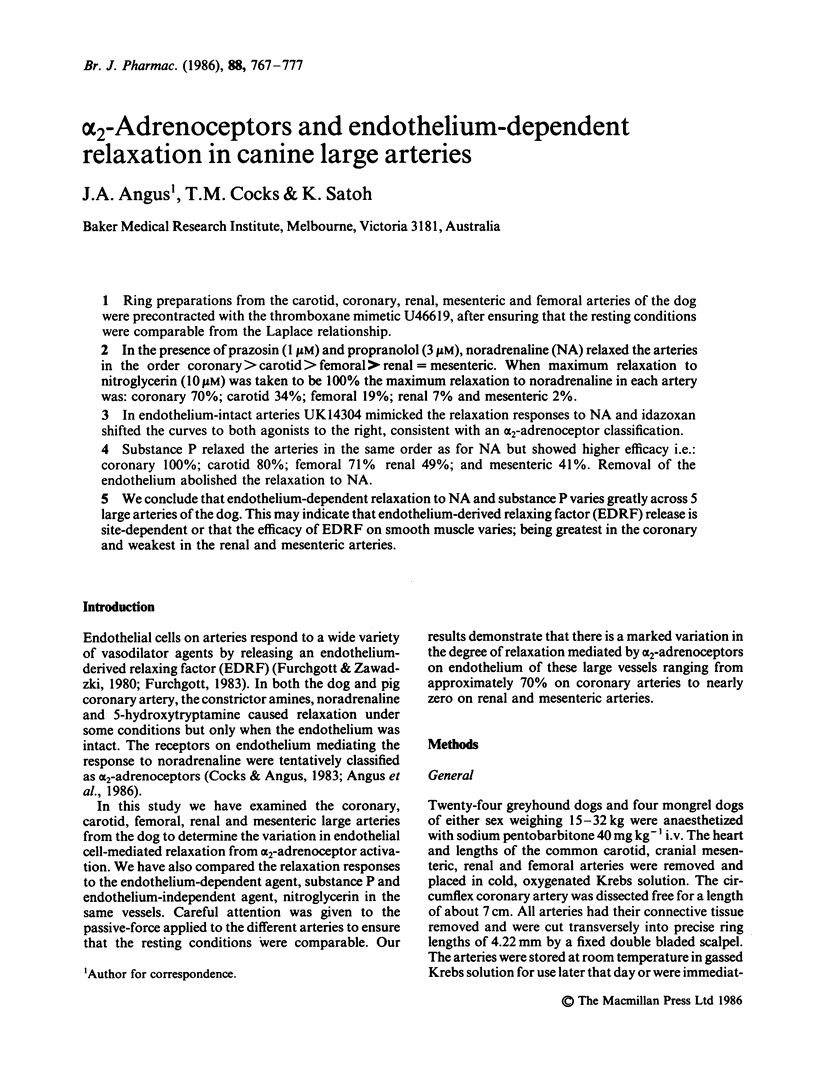
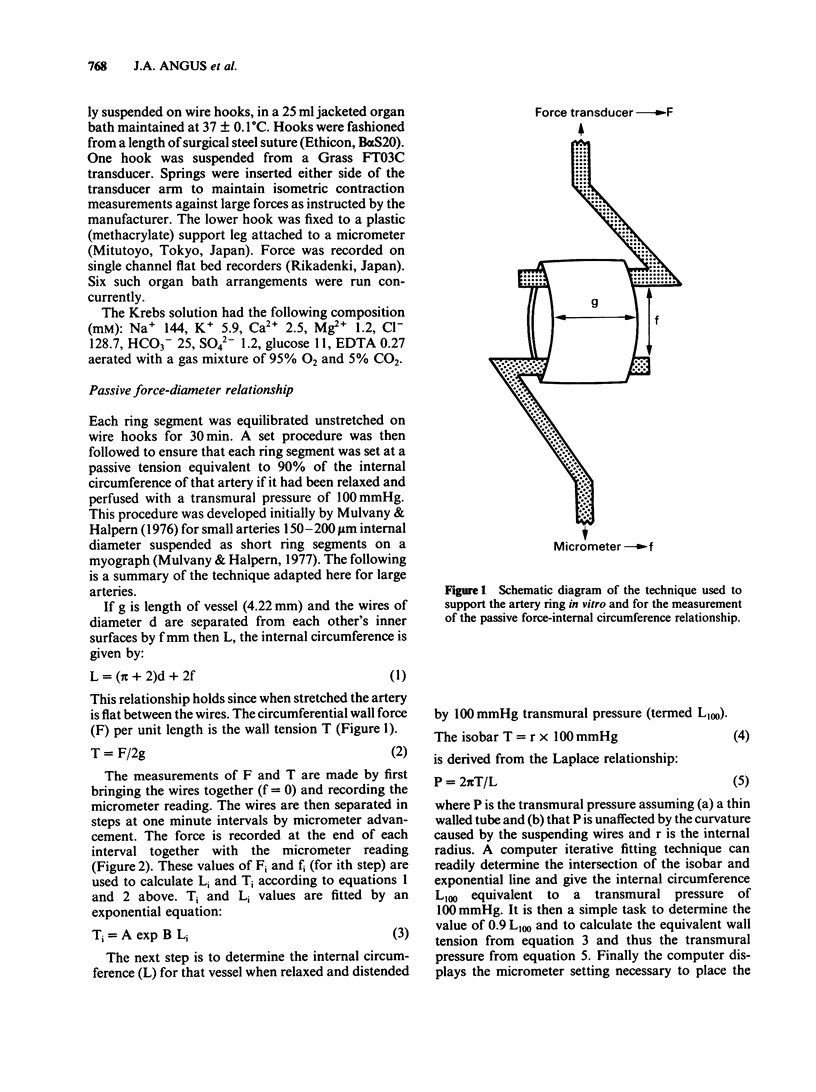
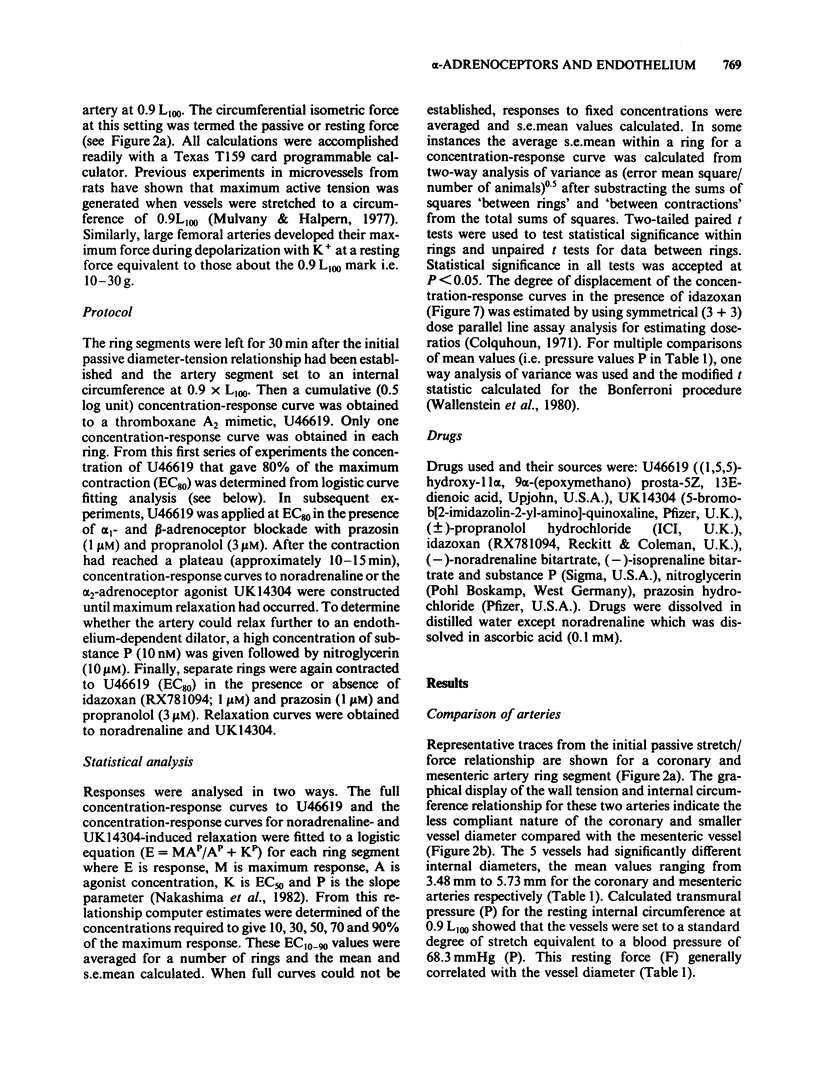
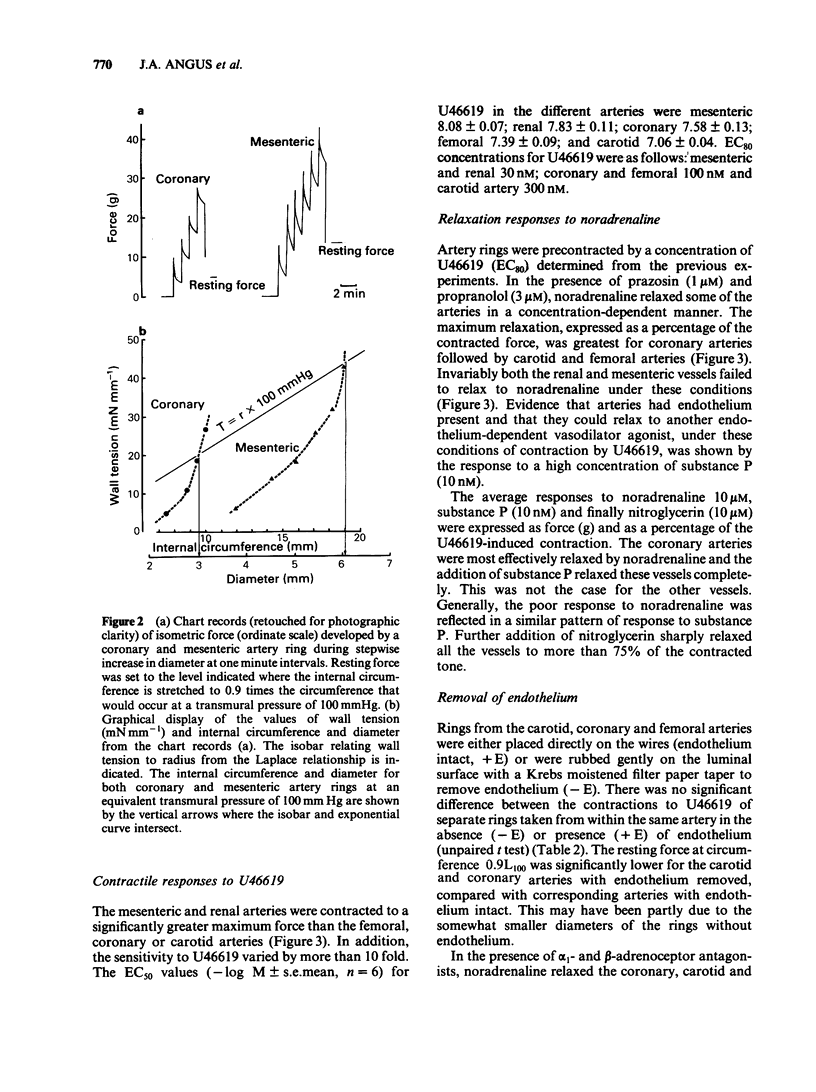
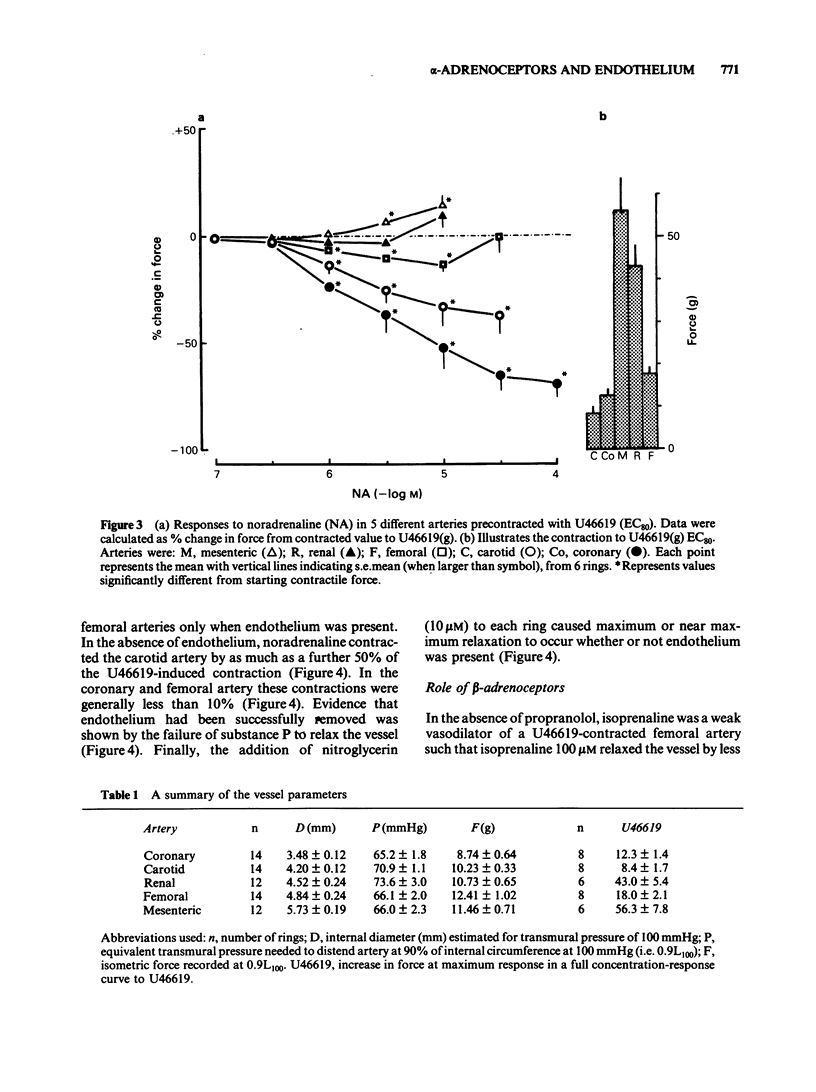
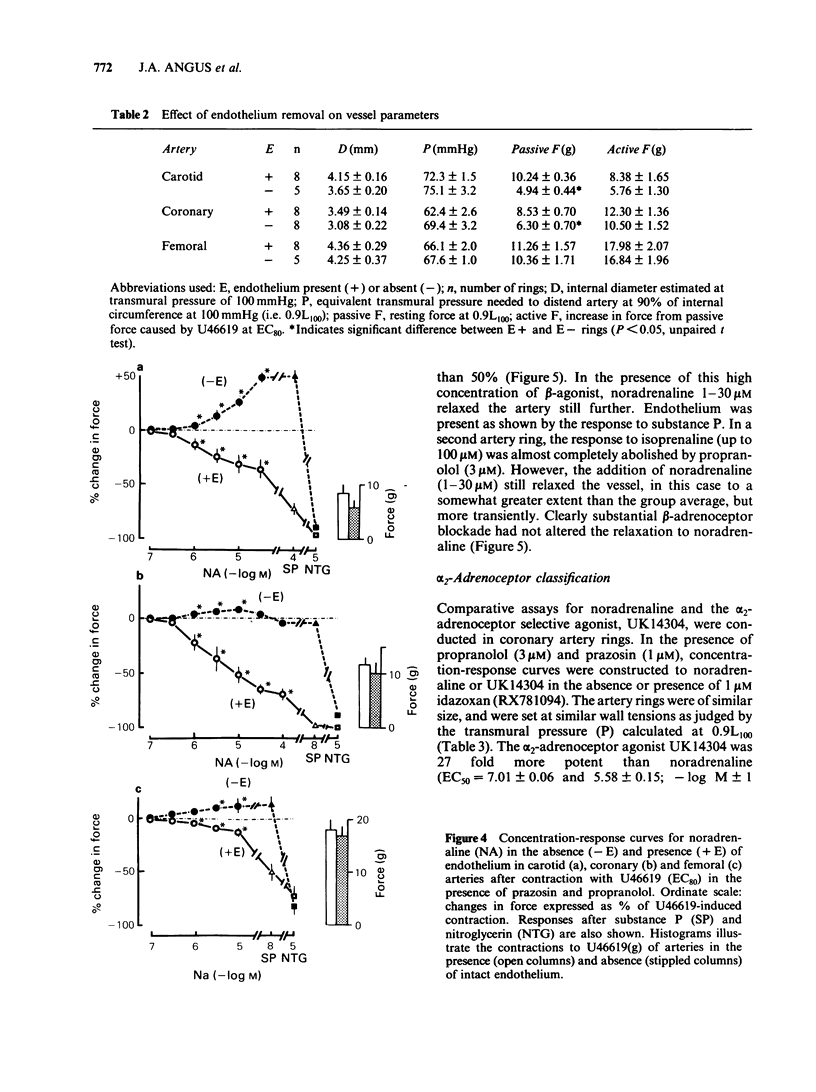
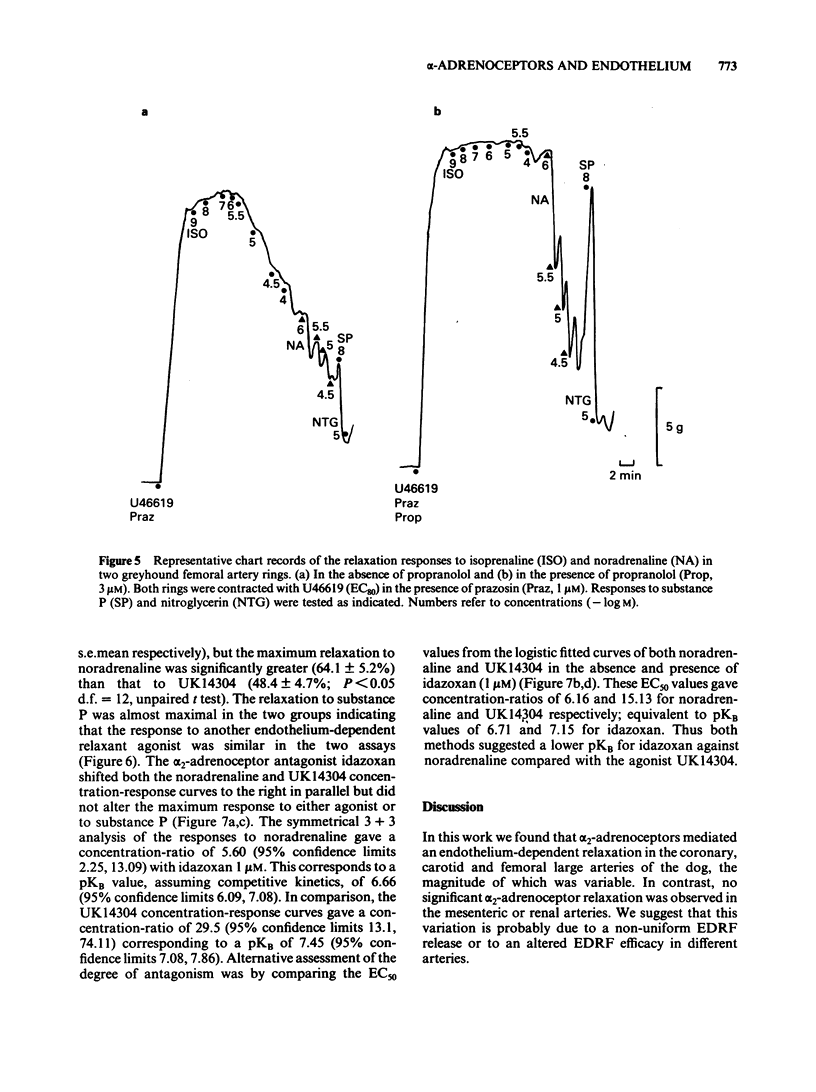
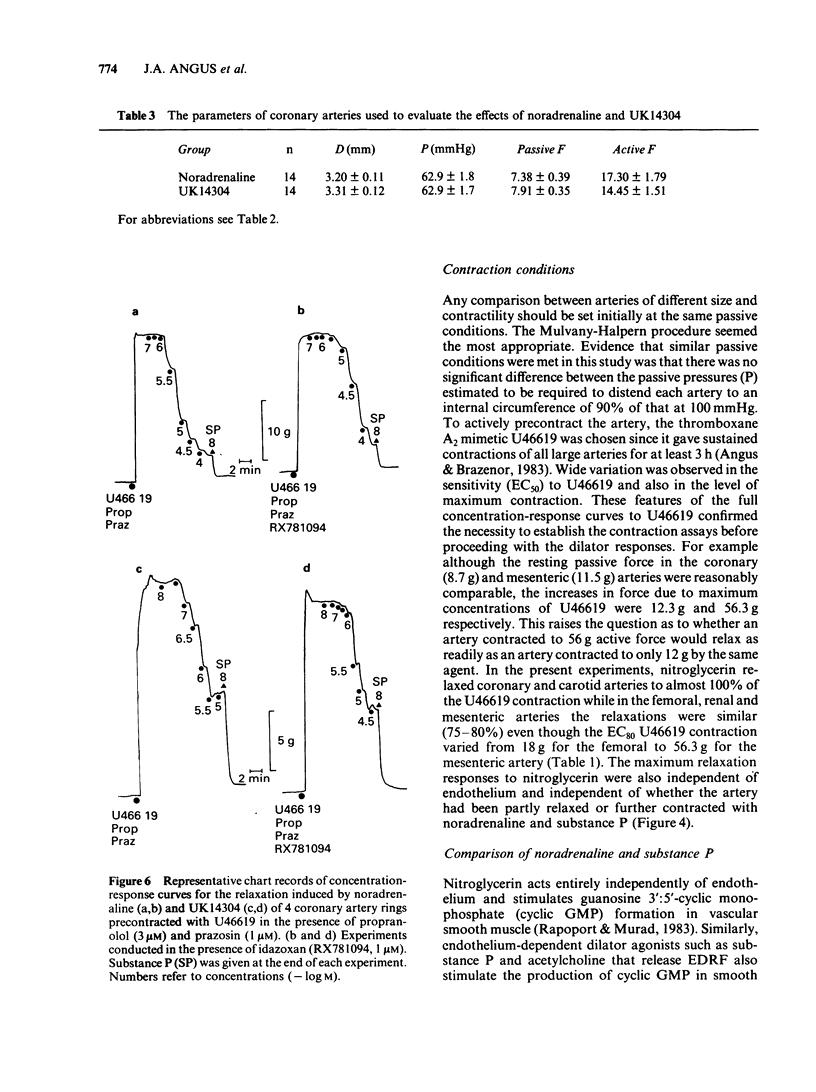
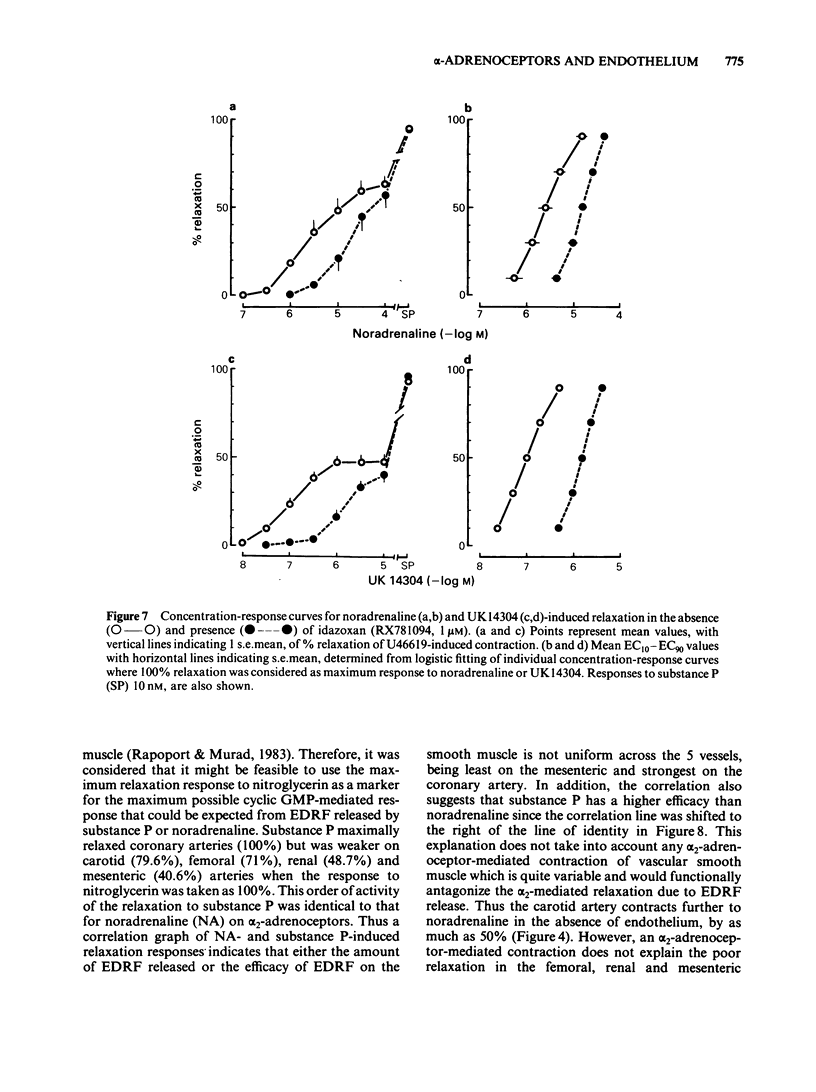
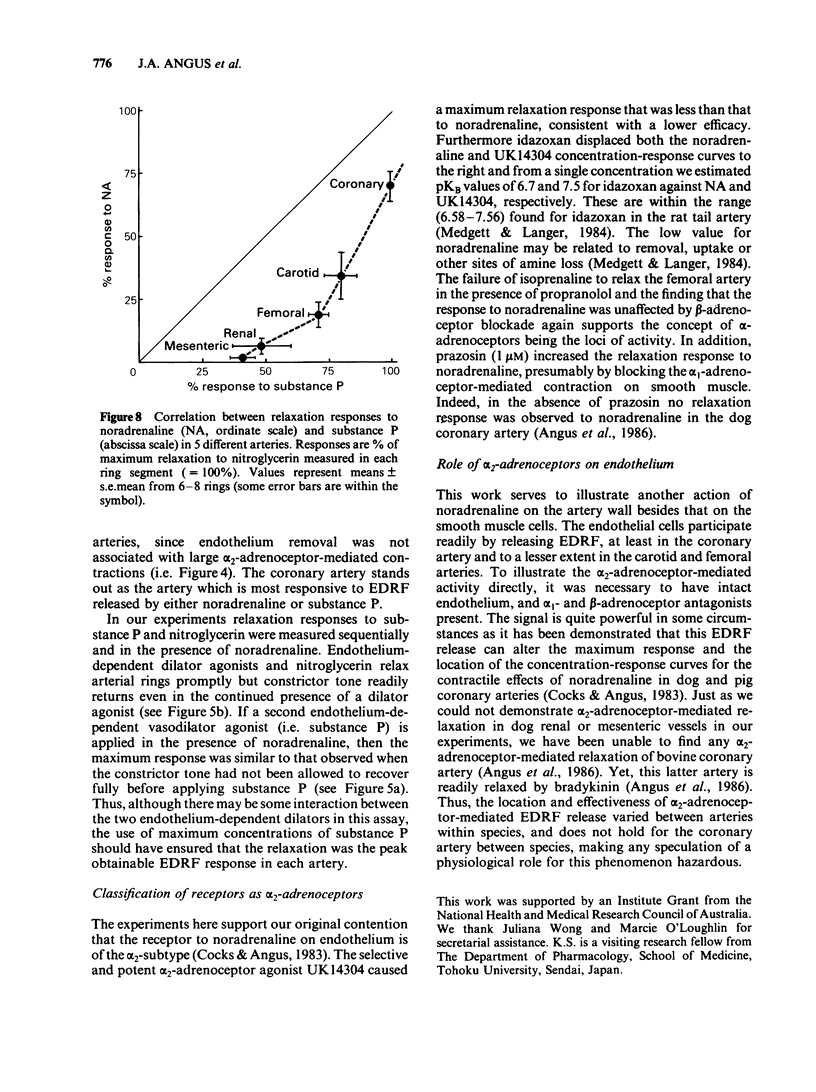

Selected References
These references are in PubMed. This may not be the complete list of references from this article.
- Angus J. A., Brazenor R. M. Relaxation of large coronary artery by verapamil, D600, and nifedipine is constrictor selective: comparison with glyceryl trinitrate. J Cardiovasc Pharmacol. 1983 Mar-Apr;5(2):321–328. doi: 10.1097/00005344-198303000-00026. [DOI] [PubMed] [Google Scholar]
- Cocks T. M., Angus J. A. Endothelium-dependent relaxation of coronary arteries by noradrenaline and serotonin. Nature. 1983 Oct 13;305(5935):627–630. doi: 10.1038/305627a0. [DOI] [PubMed] [Google Scholar]
- Furchgott R. F. The role of endothelium in the responses of vascular smooth muscle to drugs. Annu Rev Pharmacol Toxicol. 1984;24:175–197. doi: 10.1146/annurev.pa.24.040184.001135. [DOI] [PubMed] [Google Scholar]
- Furchgott R. F., Zawadzki J. V. The obligatory role of endothelial cells in the relaxation of arterial smooth muscle by acetylcholine. Nature. 1980 Nov 27;288(5789):373–376. doi: 10.1038/288373a0. [DOI] [PubMed] [Google Scholar]
- Medgett I. C., Langer S. Z. Heterogeneity of smooth muscle alpha adrenoceptors in rat tail artery in vitro. J Pharmacol Exp Ther. 1984 Jun;229(3):823–830. [PubMed] [Google Scholar]
- Mulvany M. J., Halpern W. Contractile properties of small arterial resistance vessels in spontaneously hypertensive and normotensive rats. Circ Res. 1977 Jul;41(1):19–26. doi: 10.1161/01.res.41.1.19. [DOI] [PubMed] [Google Scholar]
- Mulvany M. J., Halpern W. Mechanical properties of vascular smooth muscle cells in situ. Nature. 1976 Apr 15;260(5552):617–619. doi: 10.1038/260617a0. [DOI] [PubMed] [Google Scholar]
- Nakashima A., Angus J. A., Johnston C. I. Comparison of angiotensin converting enzyme inhibitors captopril and MK421-diacid in guinea pig atria. Eur J Pharmacol. 1982 Jul 16;81(3):487–492. doi: 10.1016/0014-2999(82)90114-5. [DOI] [PubMed] [Google Scholar]
- Rapoport R. M., Murad F. Agonist-induced endothelium-dependent relaxation in rat thoracic aorta may be mediated through cGMP. Circ Res. 1983 Mar;52(3):352–357. doi: 10.1161/01.res.52.3.352. [DOI] [PubMed] [Google Scholar]
- Wallenstein S., Zucker C. L., Fleiss J. L. Some statistical methods useful in circulation research. Circ Res. 1980 Jul;47(1):1–9. doi: 10.1161/01.res.47.1.1. [DOI] [PubMed] [Google Scholar]


